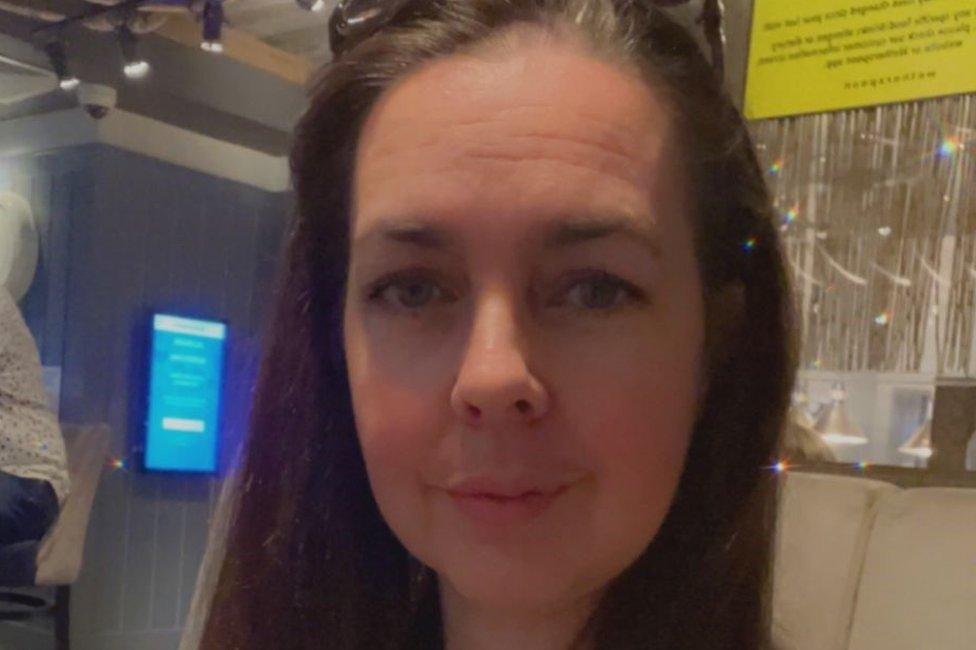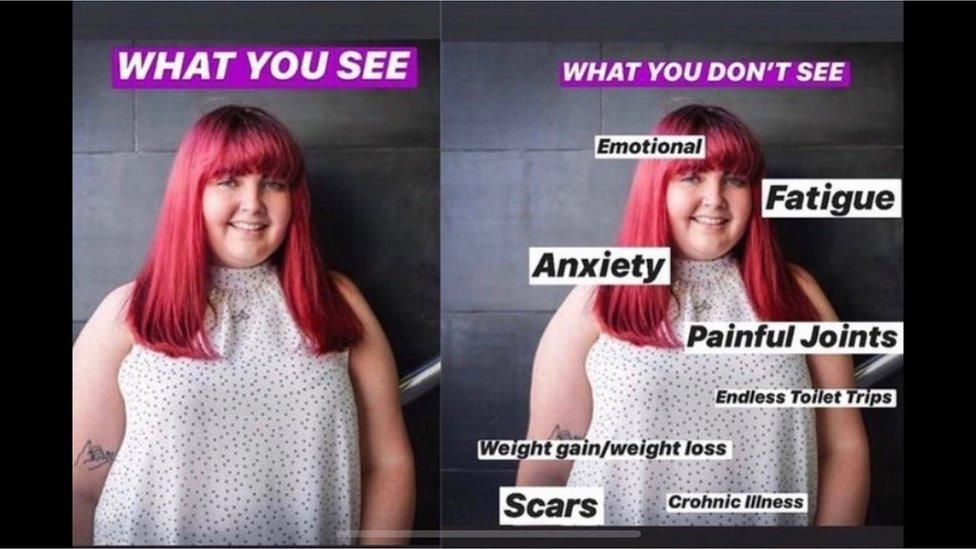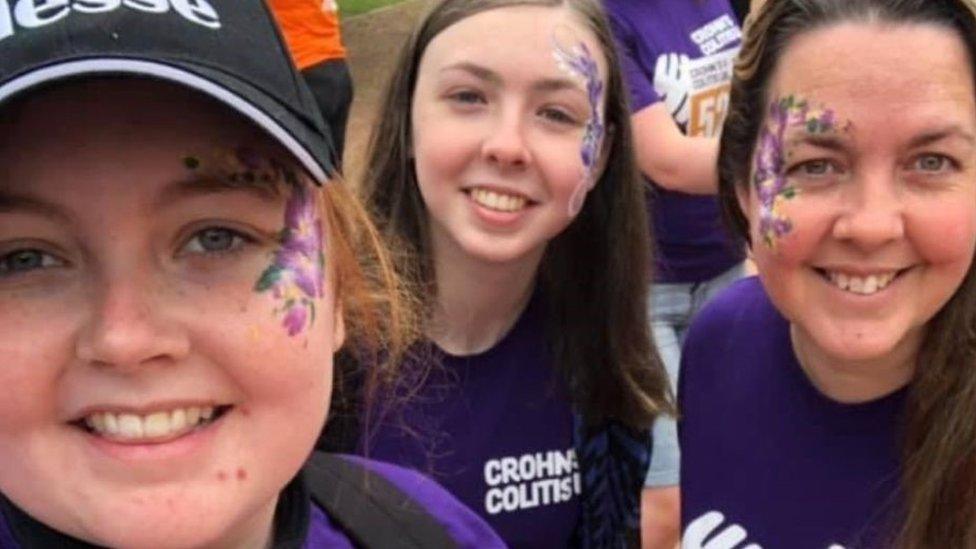Both my girls have Crohn's and it's heartbreaking
- Published

Sisters Kirstie and Abbie Gray both have Crohn's disease
Sisters Kirstie and Abbie Gray both have Crohn's disease but it affects them in very different ways.
For Kirstie it is severe pain and constant trips to the toilet which make her life extremely difficult.
But for younger sister Abbie, the inflammation in her bowel which characterises the disease has also affected her legs and her eyesight, causing her to lose her vision for long periods.
"You would think they are two completely different conditions," says Kirstie.
Both sisters experience the extreme fatigue that comes with Inflammatory Bowel Disease (IBD) - either Crohn's or Ulcerative Colitis - which is thought to affect half a million people in the UK.
Experts say a steady number of new cases are being diagnosed each year, mainly in younger people, meaning the overall totals are rising and clinical resources are struggling to cope.
Abbie and Kirstie's mother Jackie, from East Kilbride, says it is very hard to watch her young daughters suffer.

Jackie Gray says it is heartbreaking to see her daughters suffer
"It's heartbreaking at the worst times," she says. "It's hard watching them in pain and not being able to do anything."
The disease, which is lifelong and has no known cure, causes pain, nausea, swelling and erosion in the bowel as well as daily symptoms such as bleeding, diarrhoea, weight loss and extreme fatigue. The majority of patients eventually require surgical treatments.
The cause is unknown, but it is thought to be an auto-immune disease, meaning that the bowel attacks itself. The inflammation from a flare-up can affect other parts of the body too, most commonly the joints, skin, bones, eyes, kidneys and liver.
Kirstie, who is now 25, was diagnosed at the age of 12 and in the early days was constantly back and forth to hospital.
She says that when she is in a flare she can't get out of bed and can't eat.
"I don't feel like eating because I know that one way or another it is coming straight back out within a small period of time," she says.
"I'm fed up of having to say I can't come out because I can't get off the toilet."

Kirstie Gray says when she is in a flare she can't get out of bed and can't eat.
At first she was treated with steroids but has since had to move on to biologic immuno-suppressant treatments which aim to stop certain proteins in the body causing inflammation.
Her sister Abbie was only diagnosed just over a year ago. She too has spent long periods in hospital.
Because the inflammation from Abbie's Crohn's does not always show in the bowel first, she has had a range of complicated symptoms which doctors struggled to diagnose.
The 18-year-old has had to restart her college course because she missed so much of her studies through illness.
New research from Edinburgh University has shown that over a 10-year period 57% of IBD patients in Lothian had to spend time in hospital, external, many of them frequently.
Insufficient specialist resources result in delayed diagnosis and treatment which worsens disease outcomes.
However, the research has shown that efforts to get patients on more effective biologic treatments quicker can reduce the number of times they need to go to hospital.

Jackie says it is her job to get to get her daughters what they need
Gareth-Rhys Jones, a gastroenterologist and clinician scientist from Edinburgh University, says more funding is needed to administer the drugs early to prevent the considerable strain the disease places on the NHS.
"This is something that we are seeing is increasingly common across the Western world and in parts of the developing world," he says.
Dr Jones says the causes of the disease are partly genetic but can also be aggravated by environmental factors such as diet, pollution and stress.
He wants to see patients put on good treatments as soon possible and perhaps even using some of these drugs in combination.
"One of the problems we have as specialists in this condition is we only have three or four drugs that are good at treating it and if you are a patient that has gone through them there is really not a lot else we can do to help them," he said.
Dr Jones also called for support with the impact of their symptoms on patient's daily lives to help them live with the disease while they wait for new treatments to become available.
Jackie says she has spent hours on the phone to NHS 24 and waiting in A&E because she cannot get the specialist support her daughters need when they experience a Crohn's flare.
"It's my job to get them what they need because it is not always readily available," she says.
"It is not always offered and you have to look for it and fight for it."
"A lot of the time I am having to tell the doctors what they need," Jackie says.
Jackie says it is heart-breaking to see her daughters deal with such a debilitating disease.
"From the outside they look just like you or me," she says. "They don't look any different.
"But they don't have a proper quality of life because it is very restrictive. It would be nice to see them more carefree, doing more of the things they should be doing at that age."